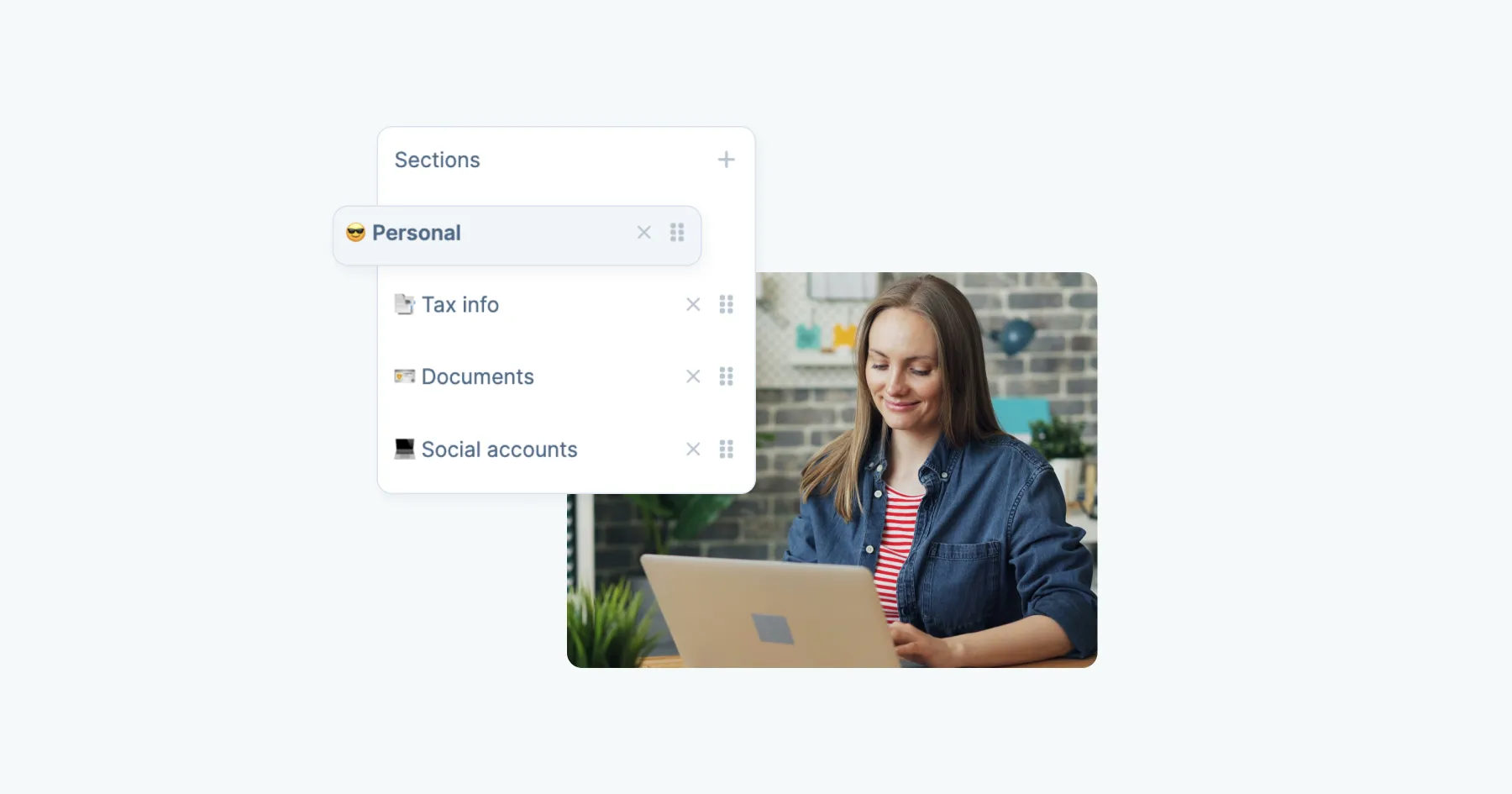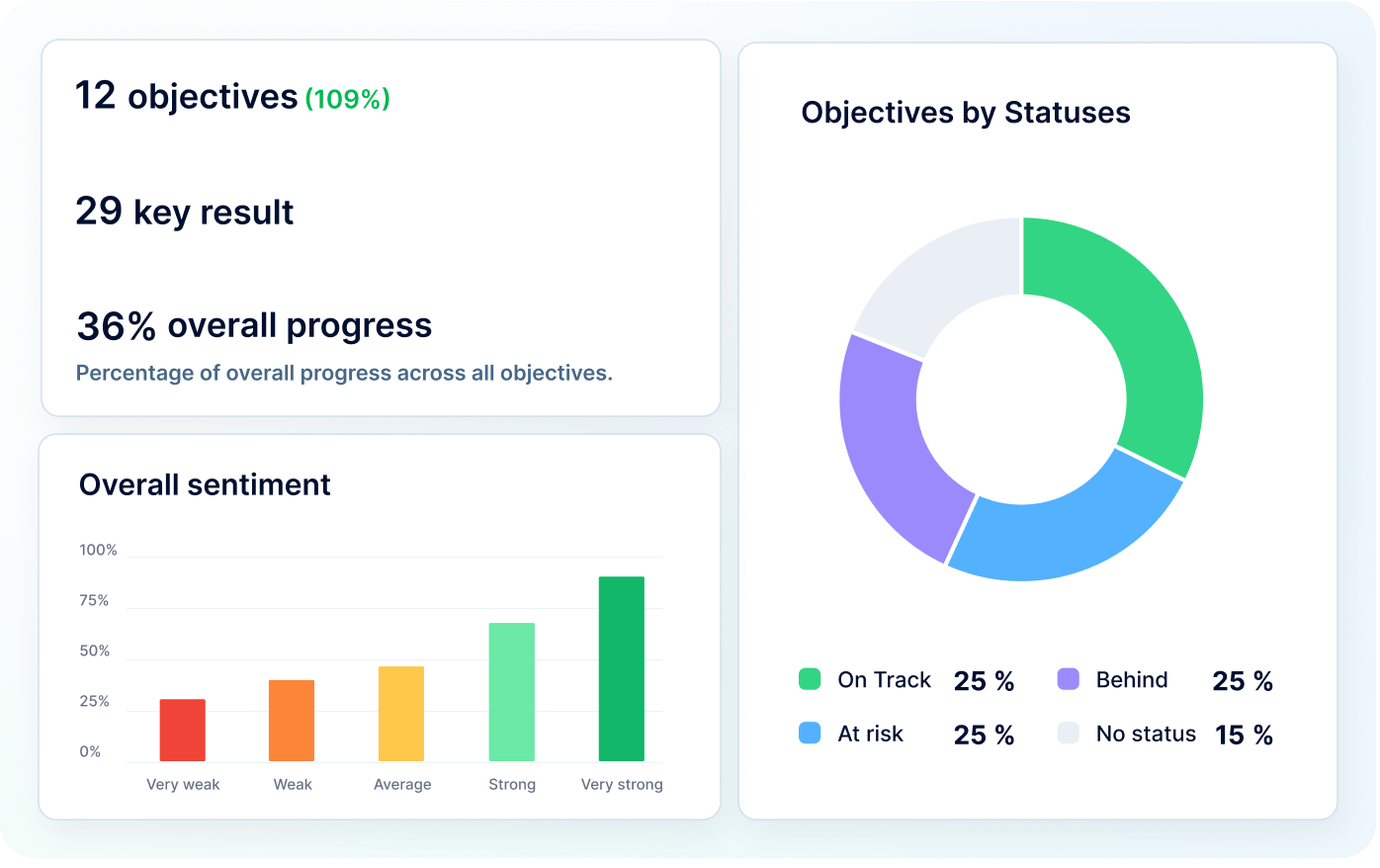
How to Ace Your First Day on the Job – 10 Tips for a Successful Start
Starting a new job is both exciting and nerve-wracking. How can you boost your confidence and leave a strong first impression? These 10 practical tips will help you transition smoothly into your new role and succeed from day one.
Congratulations! On average, 250 candidates apply for a single position (according to TopInterview), and you were the one selected. You’ve earned this opportunity – don’t let impostor syndrome hold you back. Instead of second-guessing yourself, focus on preparing for your first day. With the right approach, you’ll quickly build confidence and make a positive impact.
Essential Documents to Prepare for Your New Job
Before your first day, double-check that your passport or national ID is up-to-date. Whether you’re working on-site or remotely, your employer may ask you to verify your identity and provide your document number – this is a standard part of the hiring process.
If your new job requires you to be in the office, it’s a good idea to bring your ID with you on your first day. Even if you’ve already completed preboarding paperwork, your employer might need additional verification before issuing your access badge or employee pass.
If you're unsure which forms of ID are accepted by your employer, check the company’s onboarding guidelines or reach out to Human Resources in advance to avoid any delays on your first day.
10 Essential Tips for a Successful First Day on the Job
As a new hire, your goal is to demonstrate competence, engagement, and team compatibility. These practical tips will help you make a great impression right from the start.
1. Refresh Your Knowledge About the New Company
Before you step into the office (or log into your first virtual meeting), take some time to review the company website, social media pages, and key offerings. Even if you researched these during the interview process, a quick refresher will help you feel more prepared. This way, you won’t be caught off guard when colleagues mention major projects.
Understanding the company’s core information shows initiative and helps you integrate into your new environment more seamlessly.
2. Plan Your First Day in Advance
Having a clear plan for your first day on the job will help you feel more confident. Here’s what to consider:
- Essential documents: Make sure you have all the necessary paperwork, such as a valid ID or passport, your employment contract, medical check-up results (if required), previous employment certificates (if applicable), and bank account details for salary payments.
- Dress code: Check the company's dress code policy and choose an outfit that aligns with the company culture. Avoid wearing brand-new or untested clothes and shoes – feeling comfortable in your attire will help you focus on making a good impression rather than adjusting to stiff shoes or itchy fabric.
- Important contact information: Save the phone number of the person you need to report to and the HR department in case you need assistance on your first day.
- Key questions to ask: Prepare a few questions to help you better understand your new team, work tools, and onboarding process. For example:
- How many people will I be working closely with?
- Will I have a buddy or mentor for support?
- Does the company use an HR platform for administrative tasks?
- How long does the onboarding process typically take?
If you’re working on-site:
- Plan your commute: Check your route, estimate your departure time, and have an alternative plan in case of delays.
- Pack your essentials: Bring your phone, laptop (if required), charger, tissues, a pen, and a notebook. While taking notes on paper may seem old-fashioned, the first day can be overwhelming with information – having everything written down can be a lifesaver.
If you’re working remotely, set up your workspace to ensure a smooth start:
- Make sure your computer is plugged in and connected to the internet.
- Test your camera and microphone in advance.
- Adjust your lighting for better video quality.
- Open a window or air out your workspace before starting your day – it can help you stay focused and alert.
Most importantly, don’t overlook the fundamentals – get a good night’s sleep and have a nutritious breakfast. Research shows that people who sleep 7–8 hours are 19% more productive than those who sleep 6–7 hours and 29% more productive than those who get less than 5 hours of sleep. Similarly, eating breakfast has been linked to improved cognitive performance, which can help you stay sharp throughout the day.
3. Plan How to Introduce Yourself to Your New Colleagues
Your first day is all about meeting new colleagues. Expect to introduce yourself multiple times, so prepare a brief, 30-second elevator pitch covering:
- who you are;
- your new role;
- your professional background;
- why you’re excited to join.
Here’s an example:
Hi, I’m [Name], and I’ve joined the [Department] as a [Job Title]. I have over [X] years of experience in [Field], and in my last role, I focused on [key responsibility, e.g., client relations, negotiations, market expansion]. I’m thrilled to be here because it’s a new challenge, new people, and a great opportunity for growth.
Having a structured introduction will help you feel more confident, make a great impression, and start building connections right away.
4. Arrive Early, But Not Too Early
On your first day, aim to arrive about 10-15 minutes before your scheduled start time. This gives you enough time to find the right entrance, go through any security checks, or complete any last-minute paperwork without feeling rushed. If the office is in a new location for you, consider taking a walk around the area beforehand to get familiar with your commute and surroundings.
However, be mindful not to arrive too early – showing up an hour ahead of time might catch Human Resources or your manager off guard, putting them in an awkward position if they’re not yet prepared for your arrival.
If you’re working remotely and your new employer has granted early access to company systems, log in a few minutes before your onboarding meeting to check that everything is working properly. And before you get started – mute your cell phone. Your first day requires focus, and eliminating distractions will help you stay engaged.
5. Stay Positive and Smile
A positive attitude goes a long way in building good relationships with your new colleagues and managers. Even if your first day feels a bit stressful, a genuine smile can help create a more welcoming atmosphere.
Research shows that people who are perceived as positive integrate into teams more quickly and are more likely to receive support from their new coworkers. So, even if you’re feeling a little nervous, approach the day with optimism – it will make a difference!
6. Listen Actively and Show Initiative
Your first day on the job will be all about learning and observing. To get a solid understanding of how the company operates, focus on listening more than talking. That doesn’t mean you should be passive – quite the opposite! You can offer help with simple tasks, express enthusiasm for learning new things, and show interest in ongoing projects.
The key is to balance humility with proactiveness – demonstrating that you’re eager to contribute while recognizing that you’re still getting up to speed. This approach will help you integrate smoothly and position yourself as a valuable team member.
7. Ask Questions and Take Notes on Key Information
Asking questions shows that you’re engaged and eager to get up to speed quickly. Don’t hesitate to ask if something is unclear – it’s better to resolve doubts early than to make mistakes later. However, be mindful of how you ask to avoid overwhelming your colleagues:
- Prioritize urgent questions for the first day.
- Group related questions together instead of asking them one by one throughout the day.
- Write down the answers to avoid asking the same thing twice.
Your first day will be information overload – meeting new people, learning new procedures, and remembering logins and passwords. Don’t try to memorize everything at once – take notes. Writing things down will help you feel more confident the next day.
Make sure to note:
- The names and roles of your new colleagues and managers.
- Temporary logins and passwords for company systems.
- Key procedures and processes explained to you.
- Dates for training sessions and mandatory onboarding meetings.
This way, you’ll show that you’re not only curious and engaged but also independent and well-organized.
8. Understand Team Dynamics and Embrace the Company Culture
Every company has its own unique culture – unwritten rules, traditions, and social norms. On your first day of work, pay attention to these subtle cues:
- Do employees address each other by first name, or is your new workplace more formal?
- How do people handle lunch? Do they eat together or separately?
- What’s the office noise level? Are conversations lively, or is the environment more quiet and focused?
If you’re working remotely, company culture still exists – it just plays out differently. Observe:
- Is it expected to keep your camera on during meetings, or just at the beginning?
- Are emojis, GIFs, and abbreviations like BRB or ASAP commonly used in internal communication?
- How quickly are responses expected? Do people reply instantly, or is communication more asynchronous?
- Are there informal virtual gatherings, like casual group chats on Slack or Teams?
Adapting to company culture is one of the most important parts of a smooth transition into your new job. Take advantage of every opportunity to connect with colleagues and make a positive impression. A coffee break, team lunch, or hallway chat is a great opportunity to build relationships. You don’t need to share personal details – just start with questions that help you understand the team dynamic, such as:
- “What advice would you give to someone new on the team?” – Shows you value their experience.
- “Are there any company traditions I should know about?” – Helps you learn about the unwritten rules.
- “Where’s the best place nearby to grab lunch?” – A great way to spark a casual conversation or even get invited along.
- “So, is this office more ‘Team Dogs’ or ‘Team Cats’?” – A lighthearted question that can lead to fun conversations and help you connect with colleagues informally.
Taking the time to understand the workplace culture and genuinely engaging with colleagues will help you integrate faster and feel more comfortable in your new role.
9. Speak Respectfully About Your Previous Workplace
Did your former manager fall far short of winning “Boss of the Year”? Were your past colleagues difficult to work with? Feeling tempted to share a story? Take a deep breath and let it go – this is not the best topic for your first day (or any day, really).
According to the classic “six degrees of separation” theory, you once needed just six connections to reach anyone in the world. However, recent research from Meta shows that number has shrunk to an average of just 4.57 degrees of separation. In other words, the world is smaller than you think, and chances are that at least one in five people in your new office has some connection to your former company.
It’s always best to maintain professionalism – negative comments could make their way back to your previous colleagues, and you never know when your paths might cross again. Life is unpredictable, and today’s former coworkers could become future colleagues, clients, or even managers.
10. Don’t Be Too Hard on Yourself
“Be proactive!” “Be open!” “Be confident!” – with so much advice, it’s easy to feel overwhelmed. Your first day, and even your first week or month, will be a time of intense learning and adjustment. Job jitters are completely normal, and every new hire experiences them to some degree. Of course, you want to meet your employer’s expectations, but don’t put too much pressure on yourself – you’re not expected to know everything right away. What matters most is showing genuine interest in your role, your team, and the company’s mission. A willingness to learn and adapt will leave a far better impression than trying to prove yourself instantly.
Prioritize your well-being and accept that you won’t master every system, procedure, or company policy within the first few days. There’s a learning curve, and it takes time to fully understand how things work, including the team dynamics – who collaborates closely, how decisions are made, and how communication flows within the group. Give yourself the space to ask questions, feel uncertain, and even make small mistakes – that’s all part of the learning process. More importantly, embrace the opportunity to develop new skills that will help you grow in your role and contribute meaningfully to the team. Even the most experienced employees were once new and went through the exact same journey, so take it one step at a time.
What Every New Hire Should Know: The Reality Behind Onboarding Experiences
While these tips will help you make a great impression, it's worth noting that not all employers excel at onboarding, according to the O.C. Tanner Institute. Only 33% of employees receive even basic onboarding experiences, and as many as 40% report feeling left on their own during their first day. If your experience isn't perfect, remember this reflects organizational challenges rather than your performance. Focus on what you can control – your attitude, initiative, and willingness to learn.
If Your Big Day Wasn't Ideal, Don’t Get Discouraged
A less-than-perfect first day doesn’t mean the rest of your experience will be the same. Keeping an open mind and giving yourself time to adjust is the best way to set yourself up for success. Here’s how you can take control and make the most of your next days:
✅ Ask questions and seek out information
If no one assigned you a mentor or provided clear guidance, don’t worry about asking for details. Seeking clarity isn’t a sign of weakness – it’s a mark of professionalism and a smart move for your career growth.
✅ Take every opportunity to connect
If the onboarding process doesn’t include official introductions, take the initiative to start conversations with your new colleagues. Building relationships early on can help you feel more comfortable in your new position, and even lead to future friendships in the workplace.
✅ Give yourself time
The first few days may feel overwhelming, but things will become clearer and more natural with each passing day. Adapting to a new business environment takes time, and every step you take will help you feel more at home in your role.
✅ Don’t judge the company based on your first day
A rocky start doesn’t necessarily reflect the company’s true work environment – it may just be a busy day for the team. Instead of jumping to conclusions, focus on settling in and finding your rhythm. Fun fact: Even the most confident professionals have had awkward or stressful first days, but giving both yourself and the company time to adjust will help you start off on the right foot and build a strong foundation for your future success.
Your First Day on the Job Is Not a Sprint – It’s the Start of a Marathon
Whether you’re in the office or working remotely, your first day at a new job can feel overwhelming. But don’t worry – no one expects you to know everything right away. Focus on learning, building relationships, and supporting your colleagues. Over time, some may even become friends, creating a more positive and collaborative team environment.
By applying these tips and taking this approach, you’ll establish yourself as a professional, approachable, and trustworthy team member.
Now it’s time to take action! Prepare your plan, practice your elevator pitch, and step into your new role with confidence. Good luck!
With over five years in HR tech content creation, Maria explores how technology, people, and culture shape the workplace of today. Her interests include HR, AI, IT, and personal development, and she brings a data-driven, human-centered perspective to her writing.
Get started with PeopleForce today
Automate your HR routine to create a high performance culture in your company. PeopleForce is your best HRM alternative to stay business driven but people focused.

Recent articles
10 ways to speed up document management in HR with electronic signature
Discover 10 practical ways e-signatures simplify document workflows, prevent errors, and eliminate the need for manual follow-ups and signature chasing.
Mastering Individual Development Plans: a complete guide for HR managers
A comprehensive guide to creating and managing Individual Development Plans, helping HR managers effectively develop talent, boost employee motivation, and achieve business goals.
50 must-have HR resources for 2025: books, podcasts, and more
Stay ahead in HR with these 50 essential resources for 2025 – books, podcasts, and tools to keep you informed and inspired.

